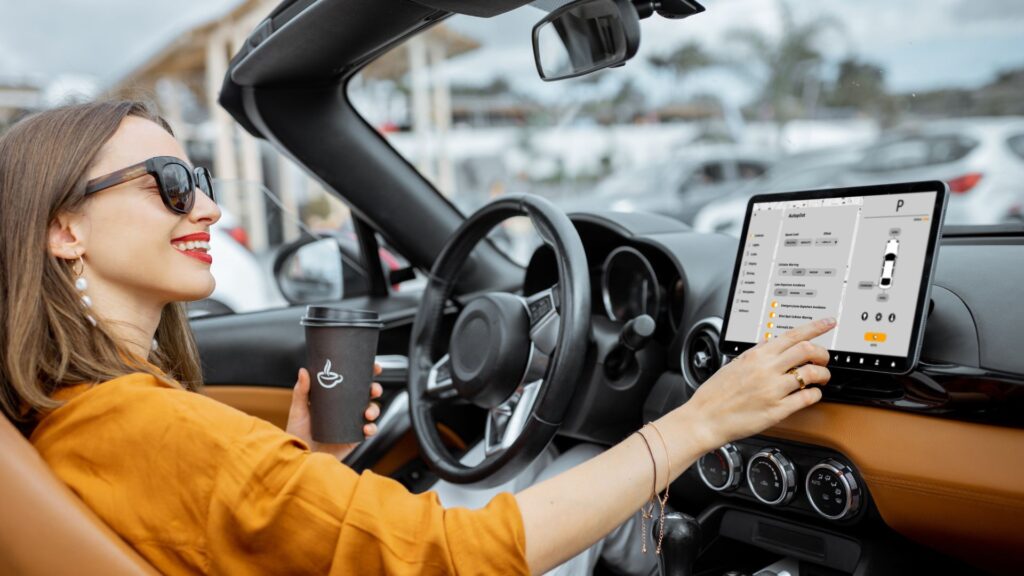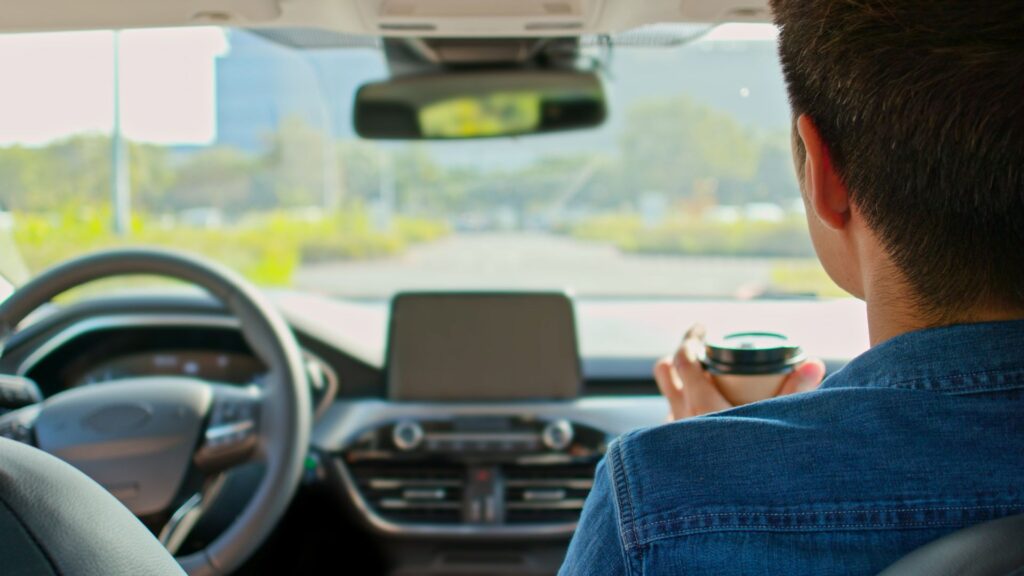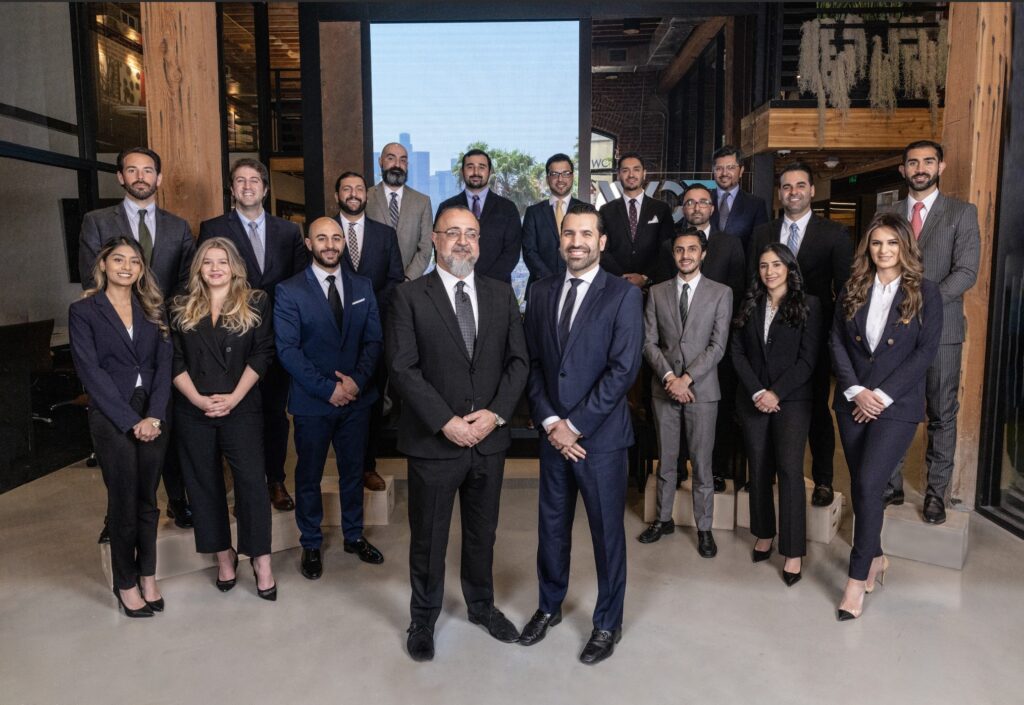Self-driving cars have made headlines for providing riders a safe and secure means of traveling throughout the city and lowering the chances of getting into a car accident. As companies like Waymo and ZooX are launching rideshare services with self-driving cars, the possibility of self-driving vehicles becoming prominently available on the road is becoming more and more likely. However, there is still a long way until that happens and the possibility of getting into a car accident with a self-driving car is more likely than one would think.
If you or a loved one has ever suffered injuries due to self-driving vehicles you may be entitled for fair compensation. As self-driving cars are becoming more available and prominent on the road, getting into a car accident with one of them can result in dealing with a confusing legal process. With that in mind, it is important to hire a personal injury attorney who is not only well versed in the Nevada court system, but is eager to dive in and figure out the complex laws surrounding autonomous vehicles.
Here at West Coast Trial Lawyers, our team of car accident lawyers are ready to take on your case and serve as your trusted legal counsel during this confusing time in your life. We are a personal injury firm that has over 20 years of legal experience and our attorneys are confident that they can get you the maximum compensation you deserve for your losses.
We’ve recovered over $1.6 billion in compensation to our deserving clients and we will continue to do our duty and represent them and watch out for their best interests. As accidents with driverless vehicles is a new legal area where not a lot of attorneys are familiar with, our attorneys are up for the challenge and will do everything in their power to ensure the at fault party is held liable for any catastrophic injuries and medical bills that have arisen due to the accident.
We run on a contingency-fee basis, meaning that you pay no fees until you win. To schedule a FREE consultation, you can get in touch with us by calling us at (213) 927-3700 or by filling out our quick online contact form.
Defining Self Driving Cars
Section 482A.036 of the Nevada Revised Statutes define a “fully autonomous vehicle” as a vehicle equipped with an automated driving system which is designed to function at a level of driving automation of level 4 or 5 in accordance to the Society of Automotive Engineers (SAE) standard of automation performance in vehicles.
Levels of Autonomous Vehicles
According to the SAE J3016 report, there are six levels of vehicle automation from level zero to level five and each level indicates how autonomous a self-driving car is when they are out on the road. Level zero to two outlines how automation is designed to strictly assist the driver with small handy features such as on road warnings, cruise control, and an automatic emergency braking system. However, it is important to note that drivers are still largely in control of vehicles with an autonomous level of level zero to two.
Meanwhile, vehicles with an autonomous level of three is when the self-driving feature truly begins. As outlined, level three is when the vehicle’s system handles all aspects of automation driving while giving drivers the option to take over driving if the system is no longer available or operable. However, level four and five is when the autonomous process is operating at a high level and the driver’s supervision is no longer needed to operate the vehicle. Should there be any errors, any built in safety protocols will be activated and the vehicle will stop operating and ensure that the passenger is out of the vehicle.
How Are Autonomous Vehicles Registered in Nevada?
According to the Nevada DMV, all autonomous vehicle manufacturers and developers must self-certify to the DMV that they are in compliance with the requirements of Chapter 482A and 482B of the Nevada Revised Statutes. In addition, all fully autonomous vehicles must follow the guidelines set by Assembly Bill 511 which outlines that autonomous cars must feature the usage of artificial intelligence, a GPS system, and a variety of sensors in the form of cameras, lasers, and radars. These vehicles must also be tested in specified geographical areas and they must report any car accidents to the DMV.
Due to the nature of autonomous vehicles and how much damage they can potentially cause, self-driving car companies like Zoox and Vay are testing the performance of their vehicles in local areas such as the area around their respective headquarters or in spacious areas with controllable levels of traffic like UNLV and the Arts District. Once self-driving car companies properly test their vehicles while meeting this criteria, the usage of driverless cars is allowed on Las Vegas roads.
Does Nevada Have Self-Driving Car Laws?
Nevada currently has several laws found in the Nevada Revised Statutes 482A that outlines a list of requirements, rules, and regulations. In addition, the legislature has permitted the Nevada DMV to create additional laws as more accidents and field studies come to light. With that in mind, if you are going to ride in driverless cars or have gotten into an accident with one, it is important to familiarize yourself with the existing laws to have a better understanding of your case.
The laws for self-driving vehicles in Nevada are as follows:
- All autonomous motor vehicles must submit an application and maintain a $5 million insurance policy to test their vehicles on Nevada roadways.
- If a third converts a regular motor vehicle into a self-driving vehicle and gets into a car accident, the vehicle’s original manufacturer is not responsible for the accident and cannot be held liable.
- The operator of a self-driving car must be able to take control of the vehicle in event of an emergency.
- All autonomous vehicle crashes that exceed a personal injury/property damage sum of $750 are to be reported to the DMV within 10 business days.
- Self driving vehicles that meet level 4 and 5 automation levels do not require human drivers involved in trips.
How Safe Are Self Driving Cars?
According to an automated vehicle safety overview conducted by the NHTSA, it is revealed that over 42,000 people were killed by self-driving cars in 2022. However, the NHTSA has reported in a 2015 traffic safety report that 94% of all traffic accidents were caused by human error such as recognition, decision, and performance based errors.
When directly comparing this number to the amount of self-driving car accidents, self-driving vehicles present itself as a safer option to lower this percentage and prevent accidents such as this from occurring. As automated vehicle manufacturers are doing their best to reduce the number of accidents as much as possible by consistently testing their vehicles around their headquarters or in large public areas like UNLV, their goal of reducing car accidents is going to have several problems until they figure out how it can be done without causing an accident.
Until these manufacturers get to that point, it is important that they are still held accountable for any car crash or car wreck that occurs as a result of a self-driving car. Just because the laws surrounding a self-driving vehicle are still fairly new, it is important that you call a Las Vegas car accident lawyer to ensure your chances of obtaining compensation and justice.
How Is Liability Determined With An Autonomous Vehicle?
According to section 41.141 of the Nevada Revised Statutes, Nevada follows a modified comparative negligence model to determine liability and fault in personal injury suits. This means that as long as the plaintiff’s negligence is not greater than the defendant’s then they can sue and recover damages. However, if the plaintiff’s negligence is greater than 50% then they would not be able to recover anything.
In a personal injury case with an autonomous vehicle, liability is going to be determined by whichever vehicle has caused the accident. If a third party driver has caused the accident then they would be responsible for any sustained injuries and property damages. However, if there was an issue with the self-driving car technology then the autonomous vehicle company would be liable for injuries and damages as per NRS 695E.090.
On top of that, in accordance to section 482A.095, all autonomous vehicles that have gotten into an accident must be reported to the DMV within 10 business days. Any failure to do so will result in the company’s application being revoked for not complying with necessary safety measures and data documentation.
What Kind of Damages Can Be Recovered in an Autonomous Vehicle Accident?
Car accident victims can recover economic, non-economic, or punitive damages for their accident, however, the types of recoverable damages will be dependent on the severity of the accident and how their personal injury attorney negotiates with the opposing counsel and the insurance company. If you are filing for a car accident case in Las Vegas, it is important to understand what kind of damages you can recover and should you wish to get an estimate for the amount you can possibly recover you can input your expenses in a personal injury settlement calculator or consult with an accident attorney for an accurate estimation.
Economic
Economic damages are calculable costs that can be awarded to the victim if they can prove that the accident has brought them unexpected costs. This is designed to make the victim financially whole so they can make a full recovery from their injuries without having to worry about any financial stress. For example, medical expenses, lost wages, physical therapy costs, property damage, and loss of future earnings are all things that can be recovered in a Las Vegas personal injury case.
Non-Economic
Non-economic damages are incalculable costs that are defined as subjective in nature and difficult to place a strict monetary value on. These damages are designed to provide the victim a fair compensation for experiencing any misfortune they may have gone through due to the accident. For instance, pain and suffering, emotional distress, and loss of enjoyment of life are subjective and will vary from person to person and as a result, it can potentially have a significant impact on the victim.
Punitive
Punitive damages operate differently from economic and non-economic damages, because instead of trying to provide victims compensation, it focuses on punishing the responsible party for their negligent actions. These damages are designed to provide victims a sense of closure and justice for the accident and it provides the court an opportunity to set legal precedence and to deter any similar cases that may occur in the future. However, it is important to note that punitive damages is rare and is only given out in certain circumstances such as a wrongful death case.
West Coast Trial Lawyers Is Here to Help
If you or a loved one has been injured in an accident involving a self-driving car, you may be eligible to pursue compensation for your injuries. As self-driving cars are going to have a larger presence on the road, filing a personal injury claim against driverless cars is going to be confusing for everybody involved. Which is why, it is vital that you hire a car accident attorney for your case in order to properly establish liability and gain compensation for your damages.
At West Coast Trial Lawyers, our team of car accident lawyers are ready to take on your case and serve as your trusted legal representative during this time. We are a personal injury law firm with over 20 years of legal experience and our attorneys have handled a variety of car accident cases from straightforward accidents to complex car pileups.
We have recovered over $1.6 billion in financial compensation for our clients and we will continue to do our duty to fight for them and represent their best interests. As the topic of autonomous vehicle accidents is an ever developing issue, our attorneys are eager to dive into this new legal gray area and help deliver justice to the victim. Should you have any questions or concerns regarding your case, our legal team is available 24/7 to answer them in complete detail.
We run on a contingency-fee basis, meaning that you pay no fees until you win. To schedule a FREE case evaluation for your claim, we welcome you to reach out to our 24/7 legal team by calling us at (213) 927-3700 or completing our easy online contact form.
Frequently Asked Question About Las Vegas Self Driving Car Claims
What Is the Statute of Limitations For These Kinds of Accidents?
According to section 171.090 of Nevada Revised Statutes, all gross misdemeanors have a statute of limitation within two years and section 171.085 states that all felonies have a statute of limitation of four years. No matter what kind of self-driving car accident scene you are involved in, it is recommended to file a claim as soon as possible, because as self-driving cars are a new addition on the road, the possibility of these cases taking a significant amount of time is very likely.
Can Self-Driving Cars Cut down on Accidents?
Autonomous vehicles are initially designed to reduce fatalities and injuries from car accidents caused by human error and negligent driving actions. As self-driving vehicles are programmed to strictly follow all traffic laws and regulations at all times, it reduces the possibility of car accidents that were caused by rash or impulsive decisions. While there are accidents based on technical issues, it aims to potentially create a vehicle where the chances of getting into a car accident is significantly low.
Who Is Liable if a Self-Driving Car Gets in an Accident?
The liability of a self-driving car accident is going to be dependent on whoever has caused the accident. If the self-driving car caused the accident, then the company who made the car would be held liable as per section 695E.090 of the Nevada Revised Statutes in accordance with personal injury derived from product liability.
However, if a third party driver has caused an accident involving a self-driving vehicle, then the passenger and the manufacturer can hold the driver liable for all injuries and property damage for the accident. In addition, in accordance with section 482A.095, if the passenger of the vehicle was a company employee testing the vehicle’s performance, then they must make a report to the DMV within 10 business days in order to give the department enough data to draft solutions in the future for more complex accidents.












































































